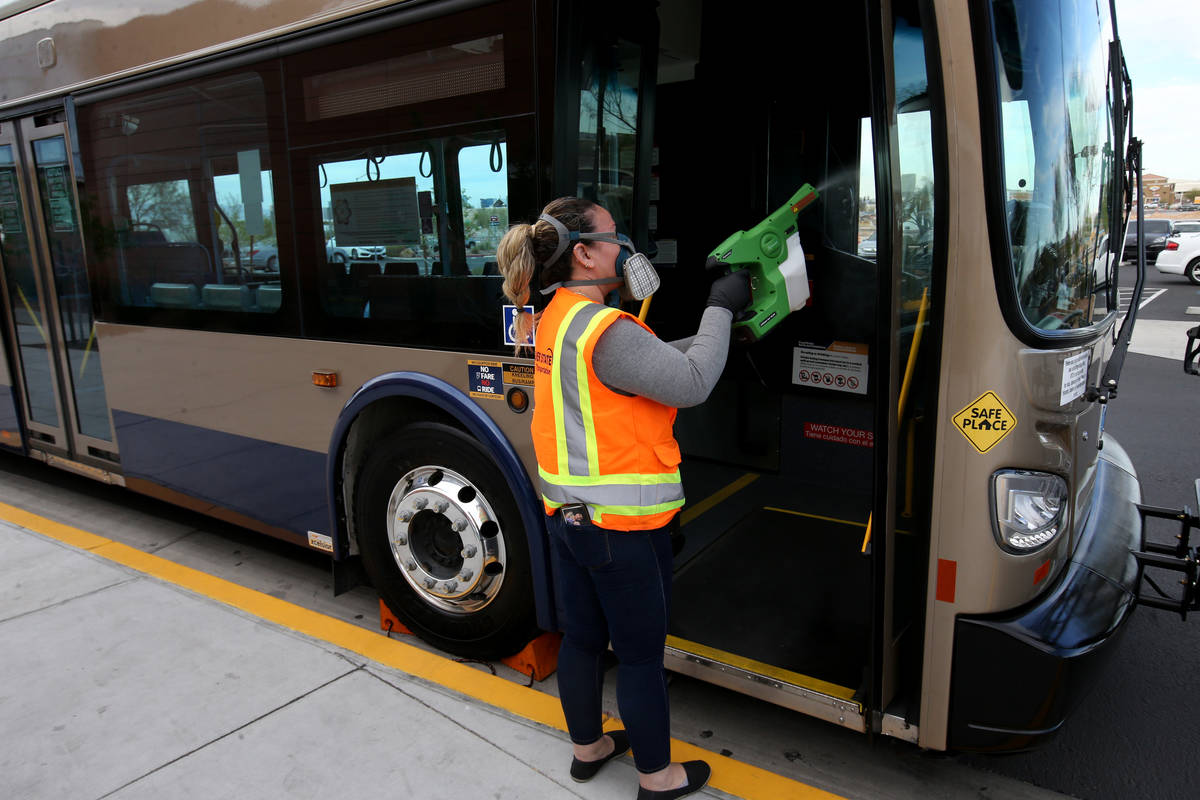RTC asking for $112M in federal coronavirus relief funds
The Regional Transportation Commission of Southern Nevada will ask the federal government for financial assistance after seeing a significant drop in revenue since coronavirus-related shutdowns began in Las Vegas.
The U.S. Department of Transportation’s Federal Transit Administration announced Thursday $25 billion in federal funding allocations to aid the nation’s public transportation systems in response to the pandemic. Funding is provided through the Coronavirus Aid, Relief and Economic Act (CARES) signed by President Donald Trump last week.
The RTC expects to submit grant applications for reimbursement for up to $112 million in operating and equipment expenses to maintain transit services during this pandemic, based on the CARES Act.
“Prior to the coronavirus pandemic, the needs for transit services throughout the valley outweighed our available resources,” said MJ Maynard, RTC CEO. “Similar to local governments and transit agencies across the country, we are experiencing unprecedented events that are negatively affecting our financial conditions.”
The revenue source will ensure the RTC can continue to provide public transportation services during the pandemic for essential workers, like health care workers, first responders and grocery workers.
“We know that many of our nation’s public transportation systems are facing extraordinary challenges and these funds will go a long way to assisting our transit industry partners in battling COVID-19,” said FTA Acting Administrator K. Jane Williams in a news release. “These federal funds will support operating assistance to transit agencies, including those in large urban areas, as well as pay transit workers across the country not working because of the public health emergency.”
The RTC has seen a 98 percent decline in revenue on its Las Vegas Strip route and in turn has reduced its service by 75 percent, including pausing the Strip and Downtown Express (SDX) and operating the Deuce on 30-minute intervals.
Residential routes revenue has dropped by 58 percent, with the RTC responding by reducing service by 29 percent and running on a Sunday schedule seven days a week.
Paratransit trip demand has fallen by 70 percent with the RTC reducing that service by 50 percent in response.
“We are monitoring our transportation services daily and making adjustments where necessary to meet demand,” Maynard said. “With the mandated shutdown of nonessential businesses, we are experiencing lower ridership, and subsequently revenue, across all routes.”
Although the RTC is reducing frequency of service in response to lower demand, it is maintaining more vehicles than needed to allow for social distancing on board.
RTC’s Silver STAR and paratransit drivers continue to help senior citizens access grocery stores, especially during dedicated hours for vulnerable customers, and delivering groceries to homebound individuals.
Earlier hours were extended to all 12 of RTC’s Silver STAR routes and two temporary routes — on Bonanza Road and Lamb Boulevard, and Decatur and Lake Mead boulevards — have been added to help those in need.
Additionally, since beginning the service on March 29, a team of 32 paratransit drivers have delivered one-month grocery supplies to 191 seniors in the valley, with more deliveries expected.
“We anticipate delivering food to more than 300 seniors this week,” Maynard said.
Contact Mick Akers at makers@reviewjournal.com or 702-387-2920. Follow https://twitter.com/mickakers on Twitter.


















